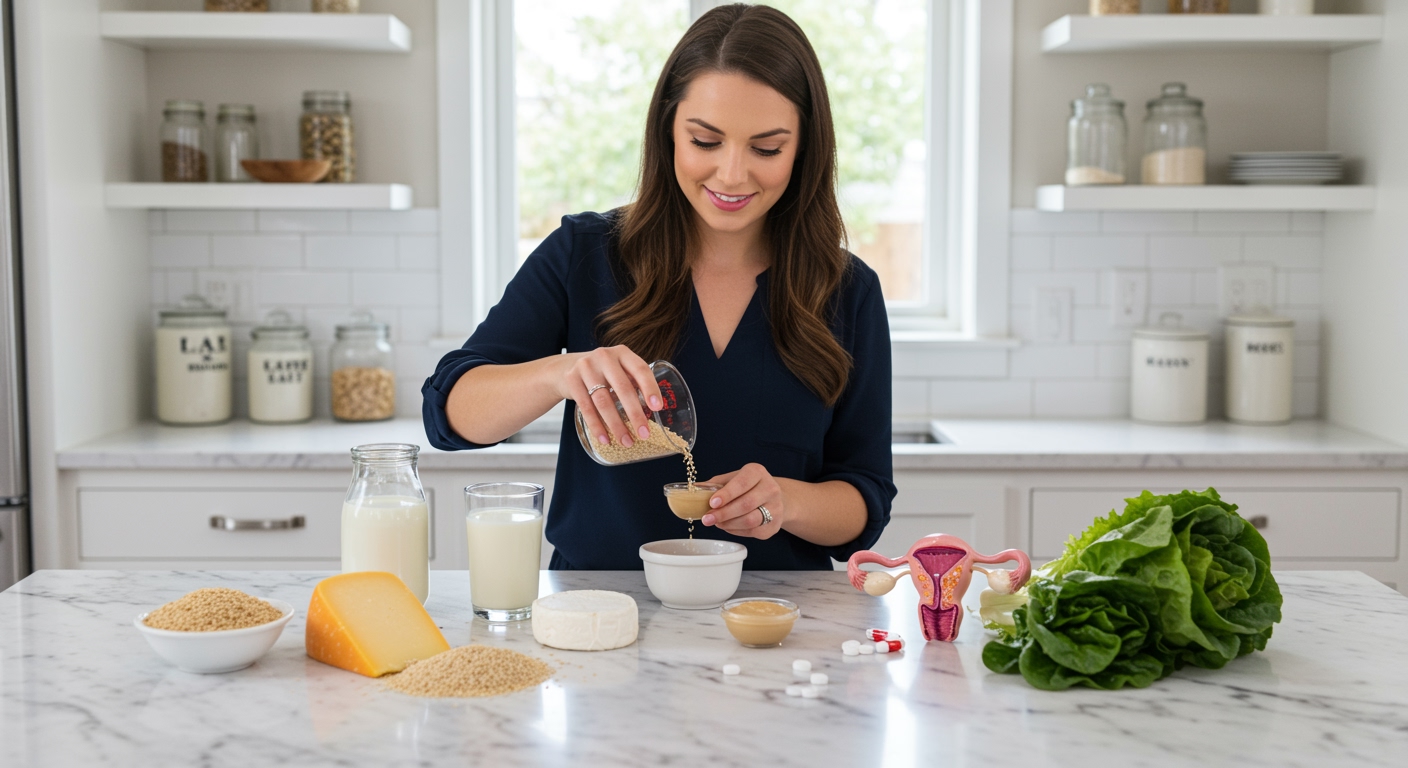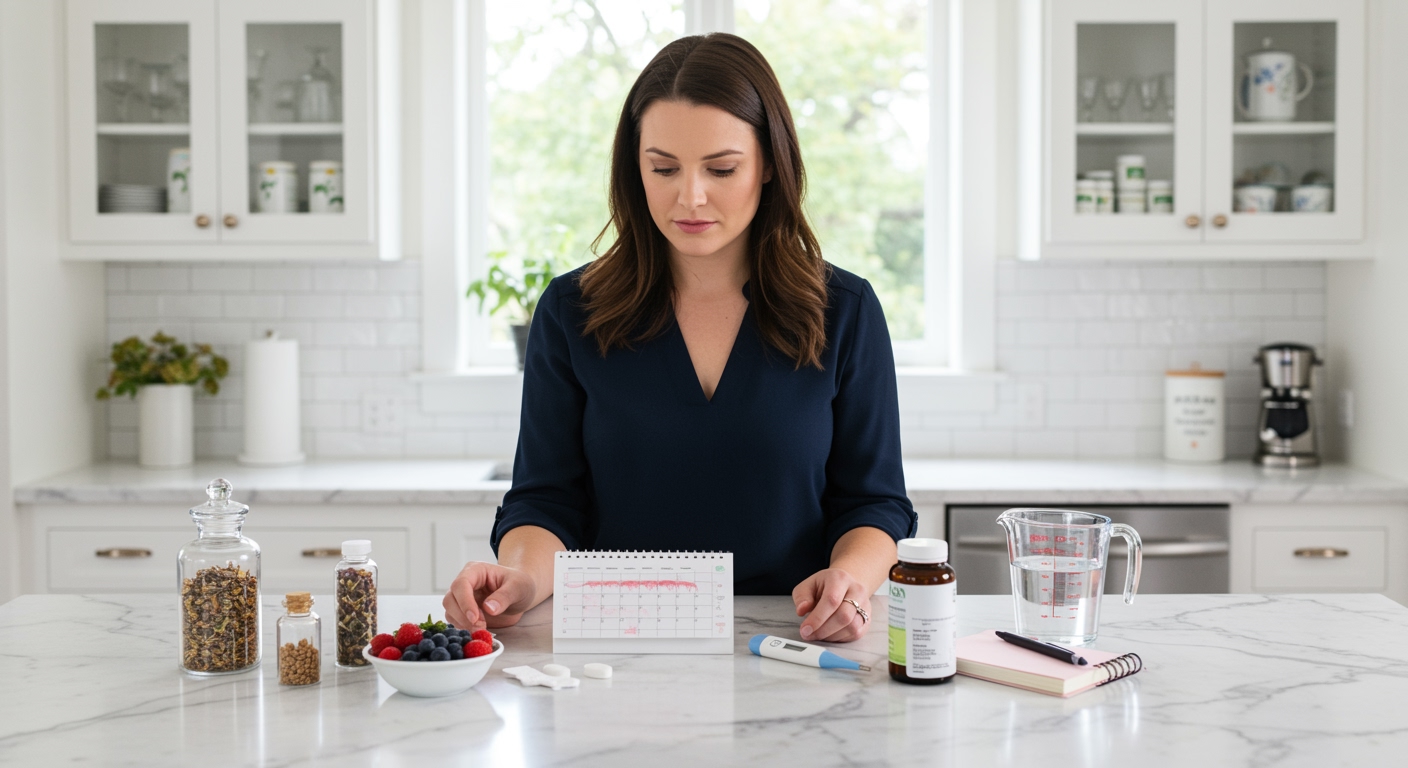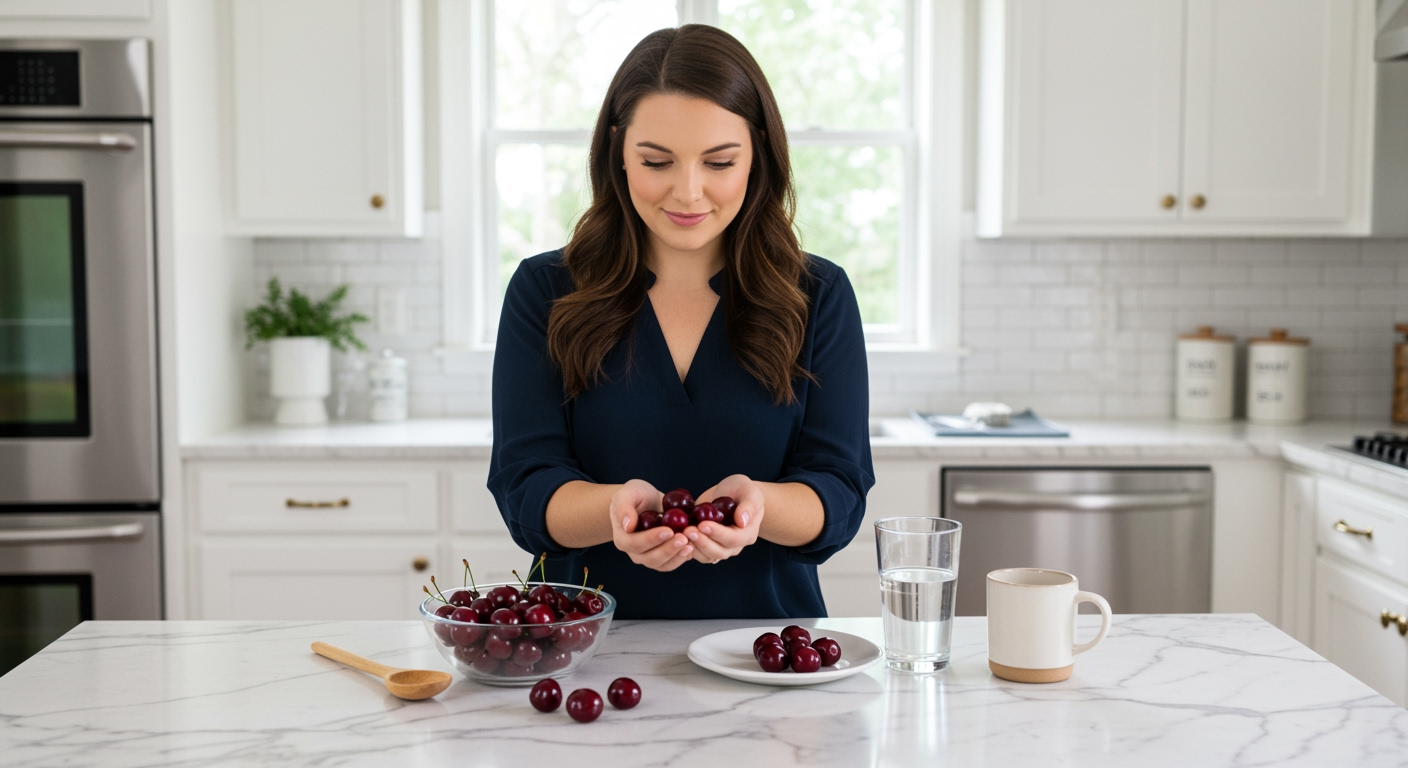✪ Key Takeaway: Sesame seeds provide excellent calcium for PCOS, delivering 975mg per cup while supporting hormone balance through magnesium and healthy fats.
Introduction
Your bones are crying out for calcium, but your PCOS makes everything complicated.
You might be wondering if those tiny sesame seeds sitting in your pantry could actually help solve your calcium struggles while managing your hormonal challenges.
Hi, I’m Abdur, your nutrition coach and today I’m going to explain exactly how sesame seeds can become your powerful ally for PCOS calcium needs.
Why Do Women With PCOS Need More Calcium?
Women with PCOS face a double calcium challenge that most people never consider.
Your insulin resistance directly interferes with calcium absorption in your intestines.
High insulin levels create inflammation that blocks calcium from entering your bloodstream effectively.
Many PCOS medications like metformin can further reduce calcium absorption by up to 30 percent.
Your irregular periods mean less estrogen production, which normally helps your bones hold onto calcium stores.
Research shows women with PCOS have 40 percent higher risk of developing osteoporosis before age 50.
✪ Fact: PCOS women lose bone density 2.5 times faster than women without the condition.
How Much Calcium Do Sesame Seeds Actually Provide?
One cup of sesame seeds delivers an impressive 975 milligrams of calcium.
That single cup provides nearly 100 percent of your daily calcium requirement.
Just two tablespoons of sesame seeds give you 176 milligrams of calcium, which equals about half a glass of milk.
Tahini, made from ground sesame seeds, contains 426 milligrams of calcium per quarter cup.
The calcium in sesame seeds comes in a highly bioavailable form that your body can actually use.
Unlike dairy calcium, sesame seed calcium does not trigger inflammation or insulin spikes in sensitive individuals.
✪ Pro Tip: Soak sesame seeds for 4 hours before eating to increase calcium absorption by 25 percent.
What Makes Sesame Seeds Perfect For PCOS Calcium Absorption?
Sesame seeds contain magnesium and vitamin K, two nutrients that work together to help calcium reach your bones.
The magnesium in sesame seeds helps convert vitamin D into its active form, which is essential for calcium absorption.
These tiny seeds provide healthy fats that help your body absorb fat-soluble vitamins like vitamin D and K.
The fiber in sesame seeds slows down digestion, giving your intestines more time to absorb calcium properly.
Sesame seeds contain lignans, plant compounds that help balance estrogen levels and support bone health.
The protein in sesame seeds provides amino acids that your body needs to build the collagen matrix in your bones.
✪ Note: Combine sesame seeds with vitamin C-rich foods like citrus to boost calcium absorption even more.
How Should You Use Sesame Seeds For Maximum PCOS Benefits?
Start with one tablespoon daily and gradually increase to two tablespoons over two weeks.
Grind sesame seeds into powder or choose tahini for better nutrient absorption.
Eat sesame seeds with meals rather than on an empty stomach to prevent digestive upset.
Combine sesame seeds with foods rich in vitamin C like bell peppers or strawberries for enhanced calcium uptake.
Avoid eating sesame seeds with coffee or tea, as these beverages can block calcium absorption.
Store sesame seeds in the refrigerator to prevent their healthy fats from becoming rancid and losing nutritional value.
✪ Pro Tip: Toast sesame seeds lightly to enhance flavor while preserving their calcium content.
Are There Any Risks With Sesame Seeds For PCOS?
Sesame seeds are calorie-dense, with two tablespoons containing about 103 calories.
Some women with PCOS may experience digestive discomfort if they eat too many sesame seeds too quickly.
The high fiber content can cause bloating or gas in sensitive individuals, especially during the first week of consumption.
Sesame seeds contain oxalates, which can interfere with calcium absorption if consumed in very large amounts.
People with sesame allergies should obviously avoid these seeds completely, as reactions can be severe.
The key is moderation – stick to 1-2 tablespoons daily to get benefits without risks.
✪ Note: Always introduce new foods gradually to assess your individual tolerance and response.
The Bottom Line
Sesame seeds offer an excellent calcium solution for women with PCOS, providing nearly 100 percent of daily needs in just one cup while supporting hormone balance through complementary nutrients.
Small seeds can create big changes when you understand how to use them properly.
I would love to hear about your experience with sesame seeds or any questions you might have about managing PCOS through nutrition – please share your thoughts in the comments below.
References
At NutritionCrown, we use quality and credible sources to ensure our content is accurate and trustworthy. Below are the sources referenced in writing this article:
- Healthline: Sesame Seeds: Nutrition, Health Benefits, and More
- PMC: Sesame Seeds and PCOS Research
- Medical News Today: Sesame Seeds: Benefits, Risks, Meal Ideas and More
- Yashin Industries: Sesame Seeds for PCOS





